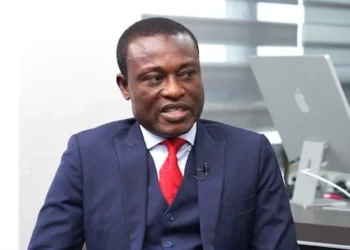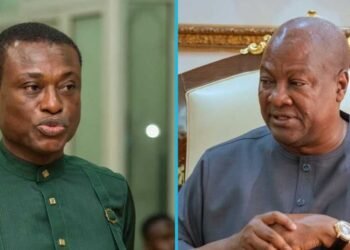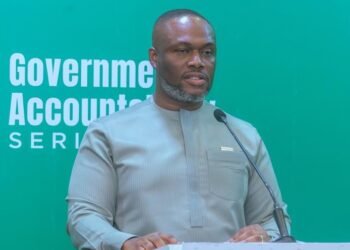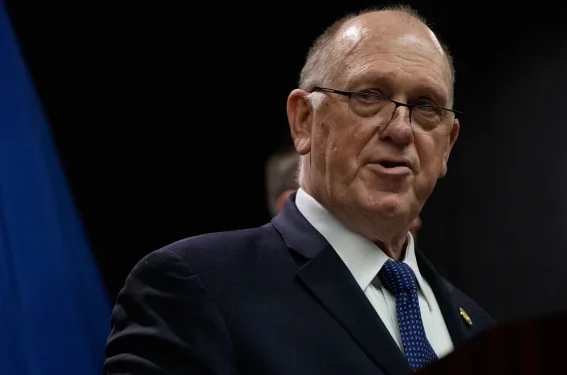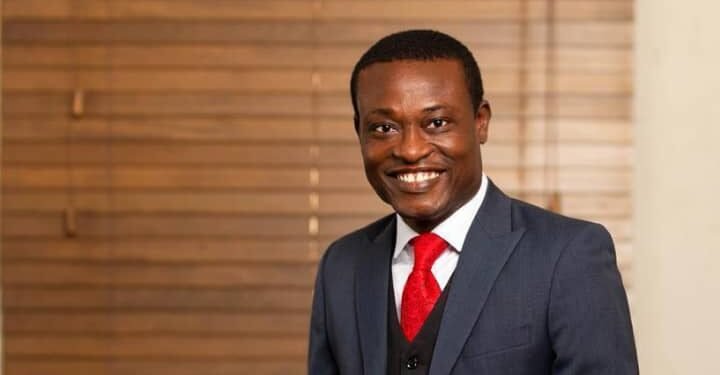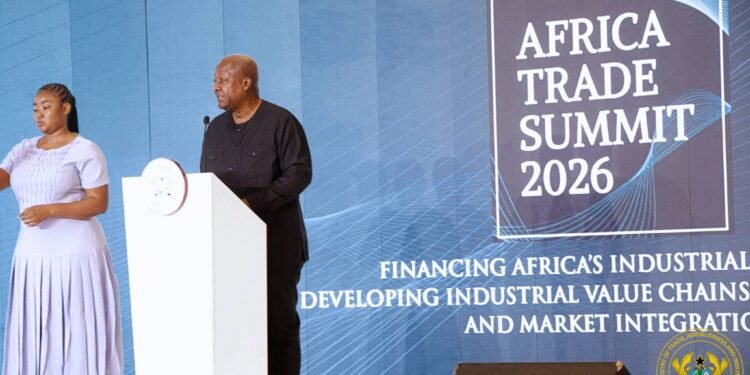As the country draws closer to the much-anticipated December 7, 2024, general elections, the ruling government finds itself under intense scrutiny, not only from the opposition National Democratic Congress (NDC) but also from prominent civil society voices.
A wave of criticisms has centred on the perceived mismanagement of the economy and the resultant hardships for ordinary Ghanaians. Among the sharpest critics is Selorm Branttie, Vice President of the IMANI Centre for Policy and Education.
In a scathing critique, Selorm Branttie condemned the government’s handling of the controversial Domestic Debt Exchange Program (DDEP), which he argued has devastated the lives of pensioners and other vulnerable groups.
He described the program as a betrayal of trust by leaders who promised economic stability and security for citizens’ investments but instead presided over what he characterized as financial destruction for many.
The IMANI’s Vice President’s ire was particularly directed at key government figures including the former Finance Minister, Ken Ofori Atta who he noted publicly assured citizens that their investments and pensions would remain untouched.
According to Selorm Branttie, these promises were soon followed by policies that eroded decades of savings, leaving pensioners unable to access funds needed for critical and sensitive services or transactions.
“Dressed in White. Looking all sanctimonious like he won’t hurt a fly. Touted as one of ‘the men’ we have. Who, together with ‘the whizzkid’, were going to transform Ghana.
“They took the savings of many pensioners today, people who have saved for 20, 30 years, who need medication for cancer, diabetes, heart disease, cancer, stroke, etc… And wiped it out completely without warning”.
elorm Branttie, Vice President of IMANI Centre for Policy and Education
He painted a stark picture of the human cost of these policies, noting that for some pensioners, this financial blow came just before their demise, leaving their families bereft and without access to their inheritance.
Silence in the Face of Crisis
Selorm Branttie’s remarks also took aim at the Vice President, Dr Mahamudu Bawumia, who doubles as the Presidential Candidate of the ruling party, touted as a “problem solver,” who he accused of remaining silent throughout the economic debacle.
His critique extended to the broader leadership of the ruling New Patriotic Party (NPP), who, he argued, have failed to provide accountability or relief to the countless Ghanaians whose livelihoods have been upended by the DDEP.
“In all this, the one who says he’s a problem solver WAS MUTE AND IS STILL MUTE!!!!!” Selorm Branttie exclaimed, emphasizing the perceived indifference of leaders who once claimed to have the nation’s best interests at heart.

A Call to Action Ahead of the Elections
As Ghanaians prepare to head to the polls in less than two weeks, Selorm Branttie’s remarks serve as a rallying cry for citizens to critically assess their choices.
“In two weeks, we can endorse this crime, or we can look at our options,” he urged, calling on voters to hold leaders accountable for the economic mismanagement that has plunged the country into crisis.
His comments reflect broader frustrations with what many see as a pattern of poor governance and broken promises. The DDEP, introduced as a solution to Ghana’s fiscal crisis, has been widely criticized for its lack of transparency and its disproportionate impact on vulnerable groups.
Civil society activists and financial experts have repeatedly warned that the program’s long-term effects could deepen inequality and undermine trust in public institutions. For many Ghanaians, the upcoming elections represent a critical juncture.
As voices like Selorm Branttie amplify the grievances of ordinary citizens, the ruling government faces mounting pressure to not only defend its track record but also chart a credible path forward.
Whether these criticisms will translate into a decisive shift in voter sentiment remains to be seen, but one thing is certain: the conversation around economic justice and accountability will remain at the forefront of the nation’s political discourse.
READ ALSO: GSE Sees Turnover Decline of 76% on Final Weekday of Trading





